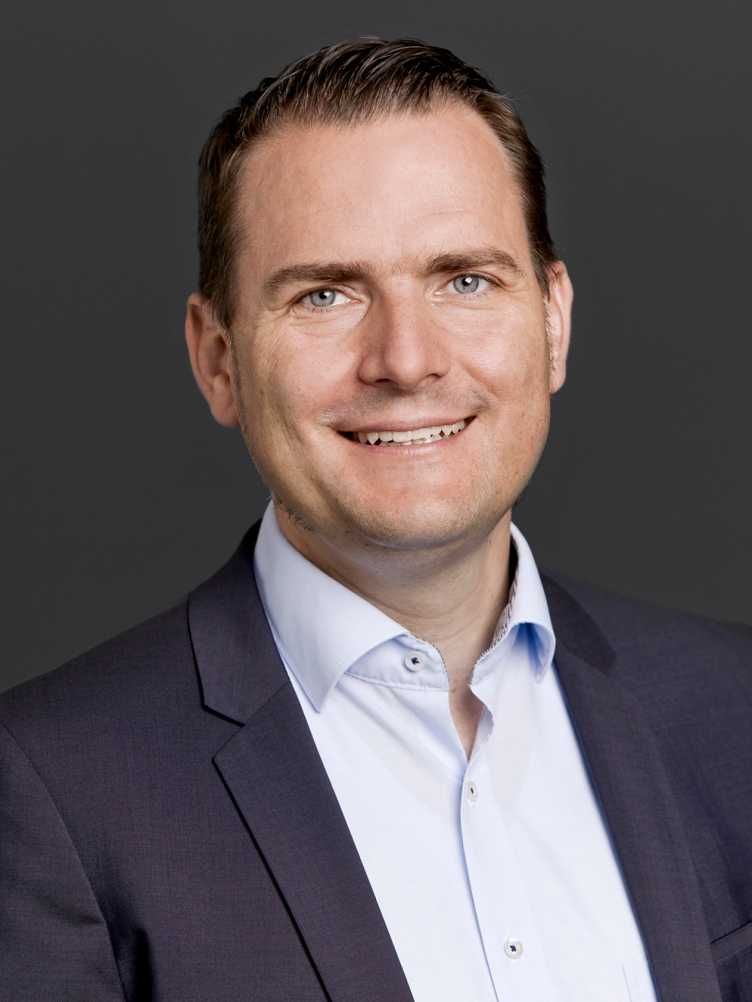Achieving global effects with molecules
André Bardow officially started as Professor of Energy and Process Systems Technology at the Department of Mechanical and Process Engineering on 1 April 2020. The 45-year-old German researches and develops technologies for sustainable energy and material conversion.

Before the coronavirus crisis, it was planned that you would be on site in Zurich starting 1 April. How are you now preparing for your tasks at D-MAVT? What is currently possible?
At the moment I am stuck in my home office in Germany. Digitally, I am fully capable of working and therefore I am already initiating the first research activities at ETH. At the moment, however, organizational questions dominate. One thing is already clear: I cannot recommend a move abroad during a pandemic.
What is your research about?
We develop technologies for sustainable energy and chemicals. We design computer models that start with molecules to predict entire processes and even whole industrial value chains. To test these models automatically, we combine them with miniaturized experiments.
What do you find particularly fascinating about this?
I am always impressed by how smallest molecules produce macroscopic effects on a global scale, as we are currently experiencing in a negative form with the coronavirus or climate change. We want to make positive use of this mechanism to transform energy and chemistry in a sustainable way.
What contribution can your research make to climate change issues?
We are working on a roadmap for the transforming of our energy and chemical industry. One technological focus is the use of the greenhouse gas CO2 as a sustainable source of carbon. We are thus developing climate-friendly ways to create plastics and fuels.
Why did you decide to take this position at ETH Zurich?
In my opinion, ETH Zurich offers excellent conditions for my research. The close cooperation between energy and process engineering corresponds well with our approach to research. While working at this exciting interface, I look forward to collaborating with my outstanding colleagues at ETH Zurich and to transfer my knowledge into teaching.
What do you want to achieve professionally in the coming five to ten years?
My life has taken so many unplanned turns that I have stopped making plans: My plan is to focus on interesting work and have fun. There are enough big problems to provide interesting challenges. The difficult part of the energy transition with the energy-intensive industries is only just ahead of us!
What do you do to balance your work and to generate new energy?
I spend time with people who are important to me. I meet for example with my best friends on a regular basis via web conference – and was therefore already prepared for the social distancing required in times of COVID-19 ;-)
What do you recommend to students who want to pursue a career in research? What personal qualities do you need?
For future researchers, I recommend: Do research! See if you really enjoy actual research or if you just like the romantic idea of it. In my view, you don't need a master plan. Just proceed step by step.
Short profile
- 2017-today Director Institute for Energy and Climate Research at Forschungszentrum Jülich, Germany
- 2010-2020 Professor and Head of the Department of Technical Thermodynamics, RWTH Aachen University, Germany
- 2007-2010 Assistant Professor for Separation Technology at TU Delft, Netherlands
- 2005-2006 Postdoc at the Institute for Polymers, ETH Zurich
- 2004 Doctoral Degree at the Institute of Process Systems Engineering, RWTH Aachen University, Germany
- 2002 Visiting Scientist, Polish Academy of Sciences, Poland
- 1999 Diploma in Mechanical Engineering, RWTH Aachen University, Germany